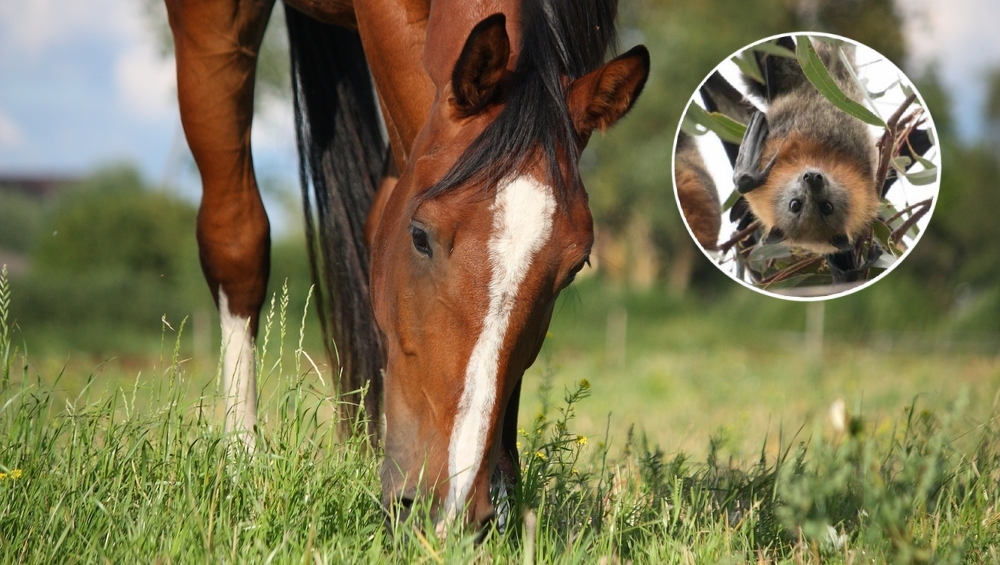Dear Breeder,
Thoroughbred Breeders Australia (TBA) and Hunter Thoroughbred Breeders Association (HTBA) is writing to notify you of a case of Hendra Virus that has occurred in a horse in the Upper Hunter Valley.
It is important to note that this case occurred on an isolated non-Thoroughbred farm, some 50 km from Scone.
It is, however, the first confirmed case of Hendra in the Upper Hunter region and is therefore a reminder that farms and veterinarians in the region should be vigilant for potential cases of the disease.
The recent incident involved a 25 year-old mare that was unvaccinated. She was euthanized by her owners after showing neurological signs of distress and then becoming unresponsive. Samples from the mare were collected last Sunday and the Hendra Virus infection confirmed on Wednesday.
HTBA President Dr Cameron Collins, who is also managing director of Scone Equine Hospital, urged all people working with horses to be vigilant and aware of the disease.
“The message to people who work with horses is to keep them away from flying foxes (fruit bats). It is also very important to remember to observe hygiene and biosecurity protocols. As a rule, people should avoid direct contact with any discharge or secretion from any horse, whether it is sick or not.”
Hendra is most likely to appear during the winter months, and has the likelihood of fatal consequences in horses. There have also been four known occasions in Australia where humans have died as a result of contracting the disease, though each of these cases has occurred when the possibility of Hendra virus was not considered.
Hendra is endemic in flying foxes and they can transmit the disease so it is important to ensure horses do not have feed or water underneath trees where flying foxes are feeding or roosting.
TBA chief executive Tom Reilly said farms should review their protocols for dealing with sick horses and contact a veterinarian immediately if they had any concerns.
He said: “This is an isolated case, remote from Thoroughbred breeding centres of the Hunter however it is a reminder to people to be aware and alert when it comes to dealing with sick horses.
“TBA encourages farms to review their protocols for dealing with horses showing signs of sickness and to contact their veterinarian immediately if they have any concerns.”
Hendra can be difficult to identify with signs often being mild. These can include an increased temperature, lethargy, respiratory discharge or distress, neurological signs, mild colic signs or sudden death.
A highly protective and safe Hendra vaccine is available and involves two initial vaccinations 21-42 days apart followed by a booster at six months, and then annual boosters after that. The vaccine is safe and effective and no vaccinated horse has contracted the disease.
Hendra Vaccination
Vaccination of horses against Hendra virus is the single most effective way of reducing the risk of Hendra virus infection in both horses and humans, vaccinations must be carried out by a Veterinarian and registered. Human infection and deaths have occurred following high-level exposure to body fluids from infected horses. Vaccinating horses is an important measure to prevent this occurring and provides a public health and workplace health and safety benefit.
Reminder to Horse Farms
- This is the season when Hendra virus is more common in NSW i.e. the cooler months of the year.
- Horse farms should talk to their vet about vaccinating their horses for Hendra virus to protect both the horses and their human handlers.
- The symptoms of Hendra virus infection are not specific. Horses may be listless, feverish, show signs of colic, neurological signs (wobbly, head tilt, unusual gait etc), respiratory symptoms, abnormal behaviour or die suddenly.
- Farms with sick horses should contact their local veterinarian who will notify a Local Lands Service inspector or an inspector with DPI if they consider the case highly suspect for Hendra virus.
- Owners should be aware of the risks associated with handling sick horses. The signs of Hendra virus are quite variable so all sick horses should be handled cautiously and carefully and with as little contact as possible.
- Children, domestic pets and other companion horses should not contact sick horses.
Management of suspect Hendra cases
• Always use Personal Protective Equipment (PPE) when handling sick horses
• DO NOT allow sick horses to be handled by children or other people.
• Isolate sick horses from pets or other horses.
• DO NOT allow dogs or other animals to contact sick or dead horses. Keep them away from the sick horse and its body fluids.
• DO NOT move sick horses to another area as this may spread the infection.
Further information:
The DPI website ‘Hendra virus” contains further information.
DPI website – https://www.dpi.nsw.gov.au/__data/assets/pdf_file/0019/310492/Hendra-Virus-Primefact-970-1.pdf
Other contact details include:
NSW Health has a factsheet that has important information regarding human health risks for Hendra virus – Hendra factsheet or phone NSW Health on 1300 066 055.

